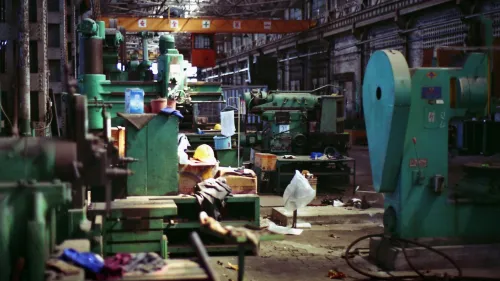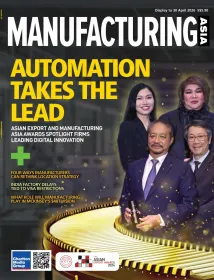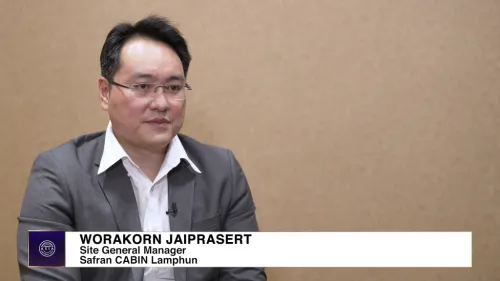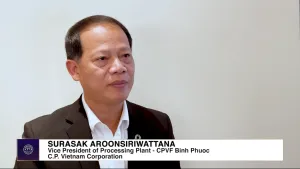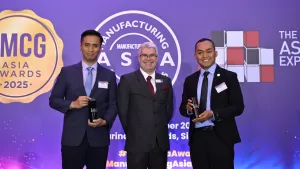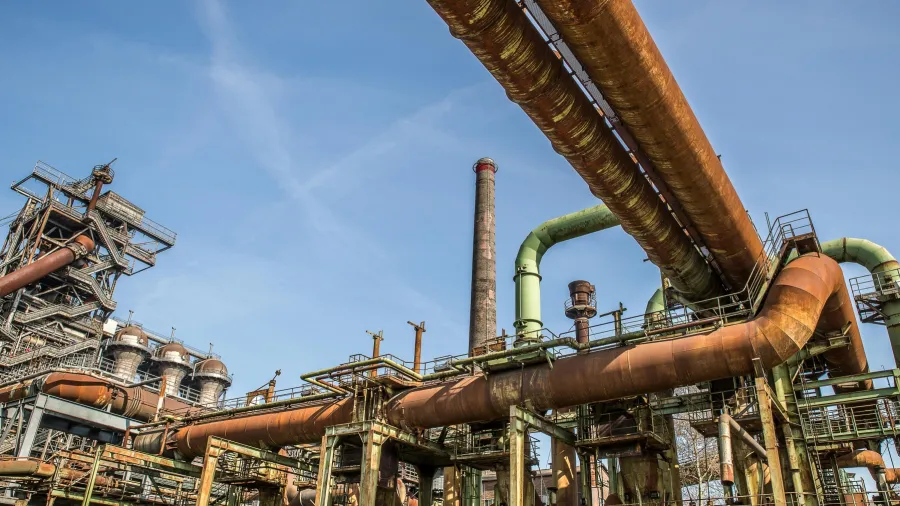
Indonesia's manufacturing sector suffers 4th month of contraction
Business confidence plummets to record low as US tariff fears and export weakness bite
Indonesia's manufacturing sector endured another challenging month in July, with business confidence plunging to its lowest level since records began in 2012 as firms grapple with US trade tensions and weakening export demand.
The S&P Global Indonesia Manufacturing Purchasing Managers' Index (PMI) rose to 49.2 in July from 46.9 in June but remained below the crucial 50.0 threshold for the fourth consecutive month, signalling continued contraction in the sector.
Whilst the rate of decline moderated, the underlying challenges facing manufacturers have intensified.
The survey, conducted between 10-24 July, captured sentiment before the announcement of Indonesia's trade agreement with the US on 22 July. However, concerns about American tariffs dominated manufacturers' thinking, contributing to the dramatic collapse in business confidence.
"Confidence regarding the coming year softened sharply in July, with the degree of optimism at the lowest in the series history," said Usamah Bhatti, Economist at S&P Global Market Intelligence. "Firms raised concerns that US tariffs and reduced purchasing power at clients would limit production volumes in the year ahead."
Production and Orders Show Mixed Signals
Manufacturing output continued to fall for the fourth straight month, though at the softest pace during this period. Companies attributed the decline primarily to weak new orders, which also contracted but at a more moderate rate than in June.
Some manufacturers reported that market weakness was partially offset by new project launches, providing a glimmer of hope amidst the broader downturn. However, export orders fell back into contraction territory for the third time in four months, following a brief stabilisation in June.
Job losses persisted in July, though at a marginal rate that was softer than the previous month. Companies continued to reduce their workforce as part of ongoing cost-cutting measures, with many firms utilising existing inventories of finished goods to fulfil orders rather than maintaining production levels.
Backlogs of work have now fallen for four consecutive months, with the rate of depletion in July being the most pronounced for three months. This reduction in outstanding orders contributed to the ongoing employment adjustments.
Supply Chain Pressures Mount
Indonesian manufacturers faced renewed supply chain challenges, with delivery times lengthening for the second time in three months. Companies reported shipping delays and disruption linked to the Iran-Israel conflict, adding to operational pressures.
Purchasing activity fell at a modest pace as firms looked to streamline their inventories of bought-in materials. Stocks of purchases declined for the fourth consecutive month as companies adjusted to lower production requirements.
Cost pressures mounted significantly during July, with input price inflation reaching its strongest level in four months. Rising raw material prices and unfavourable exchange rate fluctuations were the primary drivers of increased costs.
"Manufacturers also noted that price pressures intensified as the second half of 2025 began," Bhatti explained. "Cost inflation was at the highest for four months amid rising raw material prices and unfavourable exchange rate fluctuations."
Companies attempted to pass on some of these higher costs to customers, raising their selling prices at the fastest pace in three months, though the overall rate of charge inflation remained modest.
Despite the record-low confidence levels, Indonesian manufacturers maintained some optimism about the year ahead, buoyed by hopes of economic improvement and potential easing in raw material prices.
However, this optimism was significantly tempered by concerns about US trade policies and weakening purchasing power among their clients. The dramatic fall in confidence suggests manufacturers are preparing for continued challenges in the months ahead.
Indonesia's manufacturing sector enters the second half of 2025 facing a complex web of challenges. Whilst the rate of contraction has moderated, the combination of trade tensions, supply chain disruptions, rising costs, and weakening export demand presents significant obstacles to recovery.
The sector's performance will likely depend heavily on developments in US-Indonesia trade relations and broader global economic conditions. The recent trade agreement announcement may provide some relief, but its impact on manufacturer sentiment and business conditions remains to be seen.
"July's survey data indicated another negative month for the health of the Indonesian manufacturing economy," Bhatti noted. "Downturns in output and new orders were sustained at the start of the third quarter, but eased from June."
The path forward for Indonesian manufacturers will require careful navigation of international trade dynamics whilst managing domestic cost pressures and supply chain challenges.
